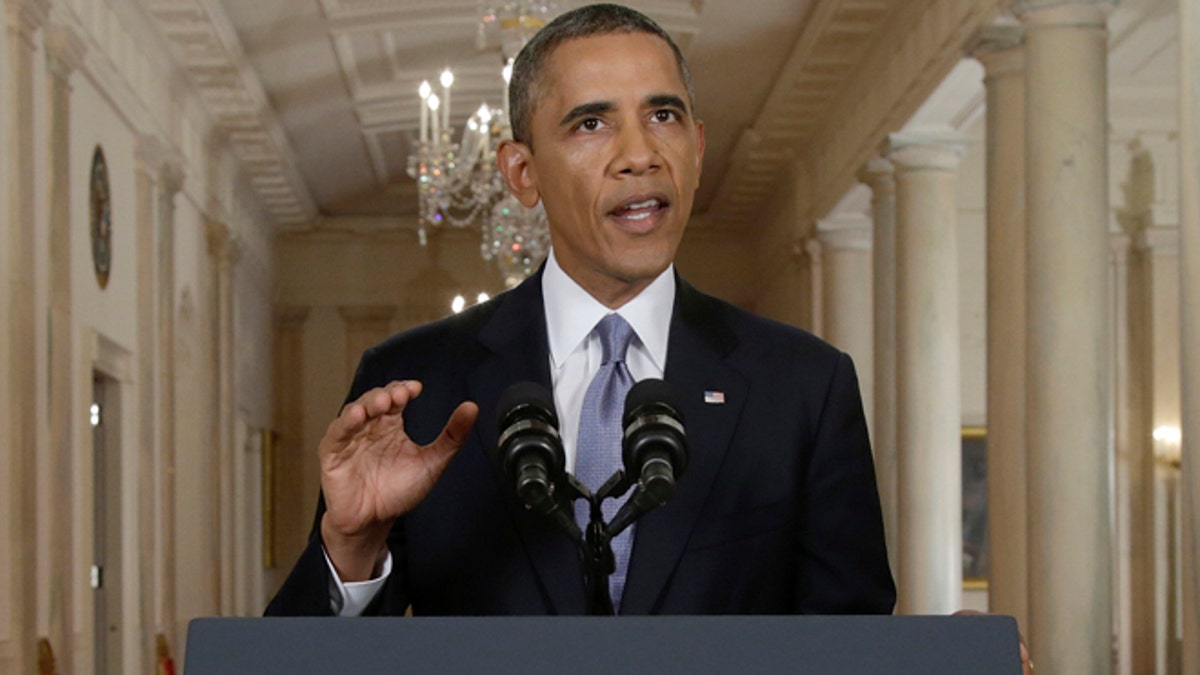
FILE: Sept. 10, 2013: President Obama addresses in a live TV speech from the East Room of the White House, in Washington, D.C. (AP)
President Obama on Sunday dismissed the notion that he mishandled his response to the Syria crisis, saying Washington is more concerned with style than substance.
“Folks here in Washington like to grade on style,” he said during an interview with ABC’s “This Week.” “Had we rolled out something that was very smooth and disciplined and linear they would have graded it well, even if it was a disastrous policy. … We know that because that’s exactly how they graded the Iraq War until it ended up blowing [up] in our face.”
The president has faced waves of criticism since he said last summer that Syrian President Bashar Assad would “cross a red line” in using chemical weapons in his country's roughly 2-year-long civil war.
The criticism intensified last month when Obama said the United States should launch a punitive military strike against Assad for using sarin gas in an Aug. 21 chemical weapons attack that killed nearly 1,500 Syrians, but first wanted congressional approval.
However, Congress, the American public and other world leaders promptly showed little interest in a military strike, which by last week led to the potential diplomatic solutions -- the origins of which remain unclear.
Some of the sharpest criticism has come from Tennessee Republican Sen. Bob Corker, chairman of the Senate Foreign Relations Committee.
“It’s like watching a caged dog,” Corker said recently. “Words like ad-hoc, improvised, unsteady come to mind.”
Obama, now in his second term, acknowledged he is used to such criticism.
“I’m less concerned about style points. I’m much more concerned about getting the policy right,” he said in a wide-ranging interview in which he talked about Iran’s pursuit of a nuclear weapon and criticized House Republicans’ approach to fiscal negotiations, including an upcoming talk on increasing the federal debt limit.
Obama said the United States' approach to Syria should show Iran that there's the potential for diplomatic solutions to arms standoffs.
But he says Iran shouldn't assume that his preference for diplomacy means the U.S. won't strike Tehran.
Obama said Iranians understand that their pursuit of a nuclear weapon is "a far larger issue for us" than the use of chemical weapons in Syria.
The president also said he has exchanged letters with Iran's new president, but the two have not spoken directly.
Obama said he believes Iranian President Hasan Rouhani understands the potential for a diplomatic solution to his country's disputed nuclear program but will not "suddenly make it easy."
Iran says its nuclear program is for peaceful purposes.
The Associated Press contributed to this report.




